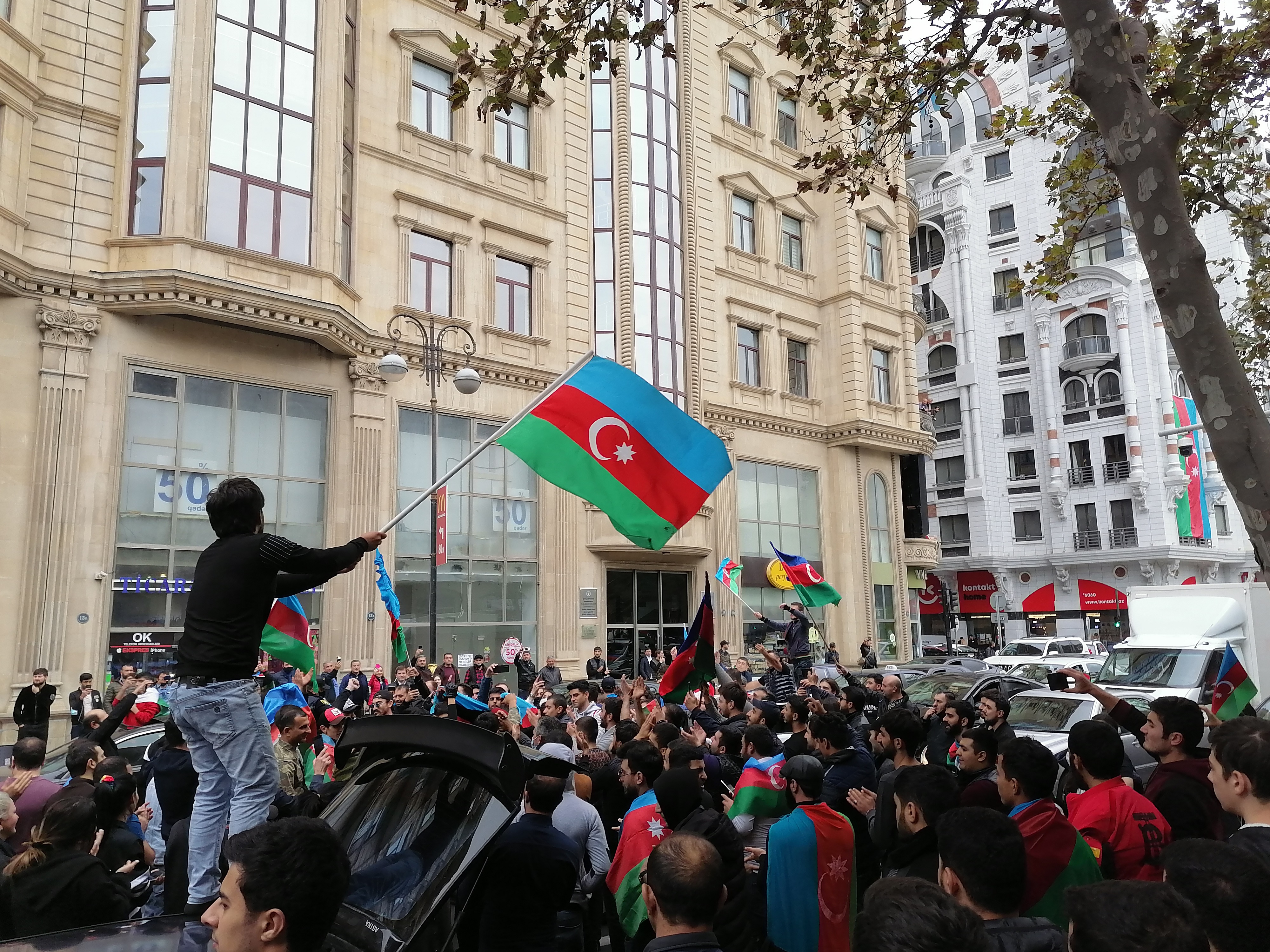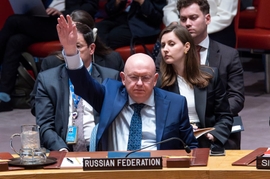Around 50 million Azerbaijanis living in dozens of countries on five continents from America to Australia are celebrating the Solidarity Day of World Azerbaijanis on December 31, a day that is recognized as the symbol of the nation’s solidarity.
The worldwide solidarity celebration of Azerbaijanis stems from the events that took place in 1989, when Azerbaijanis living in what was then the Soviet Union of fifteen republics, and Iran united with their relatives despite all hindrances and prohibitions. Hundreds of Azerbaijanis flocked from Nakhchivan, an exclave of Azerbaijan on the country’s southwest corner, to the border with Iran and dismantled the security wires for putting an end to years of separation.
Azerbaijan’s former President Heydar Aliyev signed a decree in 1993 to officially mark December 31 as the Solidarity Day of World Azerbaijanis.
Today, over ten million Azerbaijanis live in the Republic of Azerbaijan, the largest and strongest country in the South Caucasus region, where Georgia and Armenia are also located. The largest number of Azerbaijanis living outside the Republic of Azerbaijan is in Iran which accounts for up to 30 million, according to various sources. Turkey comes in at number two with 3.3 million, while about 2.5 million Azerbaijanis reside currently in Russia, according to data compiled by the State Committee of Azerbaijan for Working with Diaspora.
Around a half million Azerbaijanis live in Georgia, and almost the same number of Azerbaijanis reside in the United States, according to the government data. Germany, the United Kingdom, Ukraine, Canada, Israel, France, Sweden, the Netherlands, Hungary, Kazakhstan, Uzbekistan, Turkmenistan, Iraq, Syria, China, Japan, and Australia are home to more than two million Azerbaijanis overall.
Celebrations of Solidarity Day have been organized overseas including in Turkey, Japan, Malaysia, France, Morocco, Egypt, Kyrgyzstan, Ukraine, Hungary, and other countries.
This year’s Solidarity Day celebrations took place within Azerbaijan’s borders which have been restored completely after the end of the decades-old Armenian occupation. Azerbaijan's victory in a 44-day-long war with Armenia in the Karabakh (Garabagh) region, an internationally recognized territory of Azerbaijan, in 2020, was the ultimate example of solidarity among the people, the national army, and the state. Strong support of the nation to the army played a crucial role in the historic victory over the occupants and restoration of control over the native lands which had been occupied by Armenia since the early 1990s.
The conflict in the region spiraled on September 27, 2020, after Armenia's forces deployed in the occupied Azerbaijani lands shelled military positions and civilian settlements of Azerbaijan. The non-stop artillery fire was met with a counter-offensive operation by Azerbaijani forces, codenamed "Iron Fist". Deployment of both military equipment and personnel to the battlefield by both sides fanned the clashes into the largest military operations in Azerbaijan's Karabakh region since the ceasefire in 1994.
Over the six weeks of operations, the Azerbaijani army managed to liberate over 300 settlements, including five major cities in the Karabakh region from nearly 30-year-long illegal Armenian occupation. The liberation of Shusha, the key city in the Karabakh region of Azerbaijan, forced Armenia to retreat and sign a ceasefire pact, which is often referred to as Armenia's capitulation. The statement was signed by Azerbaijan, Armenia, and Russia on November 10, 2020. The agreement reaffirmed Azerbaijan's territorial regains in the war and obliged Armenia to return three occupied districts to Azerbaijan. As part of the agreement, Armenia returned the occupied parts of the Aghdam district to Azerbaijan on November 20, as well as the occupied districts of Kalbajar and Lachin on November 25 and December 1, respectively.
Today, the people and the government of Azerbaijan are mobilized for the restoration of war-torn lands. The liberated territories are being reconstructed and restored from almost scratch due to massive destructions caused by Armenians during the years of occupation.







 Azerbaijan and Armenia started the process of demarcation of their border on Tuesday, with the installation of the first border markers based on ge...
Azerbaijan and Armenia started the process of demarcation of their border on Tuesday, with the installation of the first border markers based on ge...
 President Aliyev emphasized the critical role of the North-South Transport Corridor in fostering transport cooperation between Azerbaijan and Russi...
President Aliyev emphasized the critical role of the North-South Transport Corridor in fostering transport cooperation between Azerbaijan and Russi...
 Iran and Pakistan have signed eight cooperation documents in various fields, and agreed to strengthen ties to fight terrorism in the region.
Iran and Pakistan have signed eight cooperation documents in various fields, and agreed to strengthen ties to fight terrorism in the region.
 As the conflict between Ukraine and Russia escalates, the strategic importance of Kharkiv, Ukraine's second-largest city, has come sharply into focus.
As the conflict between Ukraine and Russia escalates, the strategic importance of Kharkiv, Ukraine's second-largest city, has come sharply into focus.
 Iranian President Ebrahim Raisi expressed Tehran’s readiness to participate in significant development projects in Sri Lanka during the inauguratio...
Iranian President Ebrahim Raisi expressed Tehran’s readiness to participate in significant development projects in Sri Lanka during the inauguratio...



